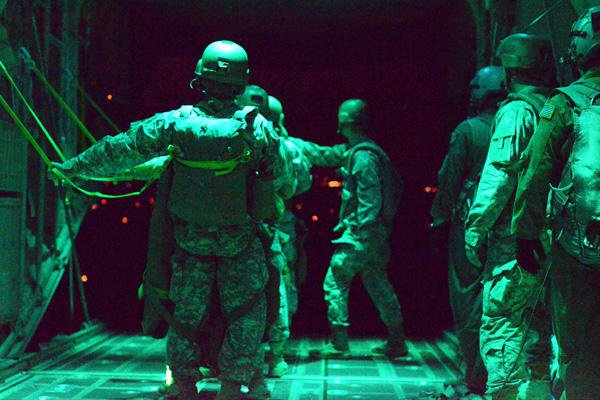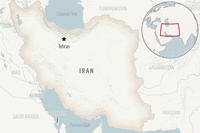U.S. Defense Department officials on Thursday defended their plan to send 250 additional Special Forces soldiers into Syria.
Defense Secretary Ash Carter and Gen. Joseph Dunford, chairman of the Joint Chiefs of Staff, appeared before the Senate Armed Services Committee to give updates on current operations against the Islamic State of Iraq and Syria.
President Barack Obama recently announced he was increasing U.S. forces in Syria "six-fold, from 50 to 300," Carter sacid.
"These additional 250 personnel … will help expand our ongoing efforts to identify, train, and equip capable, motivated local anti-ISIL forces inside Syria, especially among the Sunni Arab community," Carter said, referring to the Islamic State of Iraq and the Levant, another name for ISIS.
"And they'll also serve as a hub to incorporate partner SOF -- from both European and Gulf partners -- that will augment our coalition's counter-ISIL efforts there," he said.
In addition to initiating training inside of Syria, "we're also continuing to train and equip other vetted Syrian forces outside of Syria -- keeping our focus, as we have in recent months, on battle-hardened, proven anti-ISIL leaders whom we can make more capable as enablers and amplifiers of our effects," Carter said.
Sen. Joe Manchin, a Democrat from West Virginia, said he wanted to know if cutting more F-35 Joint Strike Fighter jets would free up more money to send more Special Forces soldiers into Syria.
It cost approximately $1 million to $1.5 million to train one special operator, so that is roughly $375 million to train those 250 special operators going into Syria, Manchin said. By contrast, it costs roughly $108 million for each new F-35 fighter.
"Knowing the type of fight we are expecting you to fight right now to defend our country, conceptually if we traded 10 F-35s we could increase the size of our special operations forces [in Syria] to over 700," Manchin said.
"Are we concerned that we are sacrificing short-term needs for our long term security strategy and would 10 less F-35s make that much of a difference down the road as it would make a difference today with the 700 troops on the ground?" he asked.
Dunford agreed that the Pentagon faces a wide range of challenges and threats. To cope with those, senior leaders have made "the kind of choices you mentioned" during the drafting of the proposed fiscal 2017 defense budget, he said, adding that the Pentagon already reduced the number of F-35s to free up resources for other priorities.
Carter said that Congress could help with the current plan to send these 250 special operations forces into Syria by releasing "the $349 million in 1209 funding currently being blocked by Congress."
Sen. John McCain, a Republican from Arizona and chairman of the panel, said he was blocking the reprograming money "until yesterday when I had a very excellent briefing from Gen. Dunford that cleared up the concerns that I had. And why did I have those concerns Mr. Secretary?
"It's because when we spent a couple of hundred million dollars the last time then the commander of Central Command testified before this committee that we had four to five people left" in the first program to train-and-equip moderate forces to fight ISIS in Syria, he said.
Carter acknowledged that "we made a disappointing start at that we have changed the approach to that fundamentally."
He added, "We were trying when that program was initiated to make forces, brand new forces to counter ISIL in Syria. Our approach now is to identify -- this is where the Special Forces have been valuable to us -- to identify forces already fighting ISIL whom we can enable with the great might of the American military."
McCain then asked what happens if the ceasefire in Syria collapses and there is a "resumption of Russian bombing of American-trained forces? What is going to be our option there?"
Dunford answered by saying, "Chairman, if our forces are attacked by regime forces, we have the authority to respond."
Sen. Tim Kaine, a Democrat from Virginia, said he believes that the 2001 Authorization for the Use of Military Force is not enough to justify deploying combat forces into Syria.
"U.S. action in Iraq against ISIL is at the invitation of the Iraqi government, so there is clear international legal justification of all our activities in Iraq," Kaine said. "I'm sorry to say this but there is also international legal justification for Russian military activity in Syria because Russia has been invited in by the sovereign government of Syria.
"But what I struggle with is how can we criticize the Russian incursion into Ukrainian sovereignty when we are carrying out and now escalating military operations in Syria without the permission and really even against the will of the sovereignty of that nation?" he asked.
Carter said that he agreed with Kaine that a new authorization for the use of force in Syria would be appropriate "because it would signify to the troops that the country is behind them."
"I am told by the lawyers, and I believe this, that the legal basis for what we are doing exists in both domestic law and international law," Carter said. "I will say 'if there is a difference in what we are doing in Syria and what the Russians are doing in the Ukraine is we are trying to fight real terrorists, we are not trying to destabilize a stable situation.'"
Kaine said he is a strong supporter of Obama, but "I think we have made a complete hash of the doctrines of war, both domestic and international.
"We are engaged in an incursion into the sovereign nation of Syria without their permission against their will. We are trying to criticize Russia for engaging in an incursion into another nation against their will, and we are asserting is the difference is that we are doing something good and they are doing something bad," he said.
"I agree that we are doing something good. I agree that they are doing something bad," Kaine said, "but that is not a limiting principle because everybody is going to say what they are doing is good."
-- Matthew Cox can be reached at matthew.cox@military.com.





























